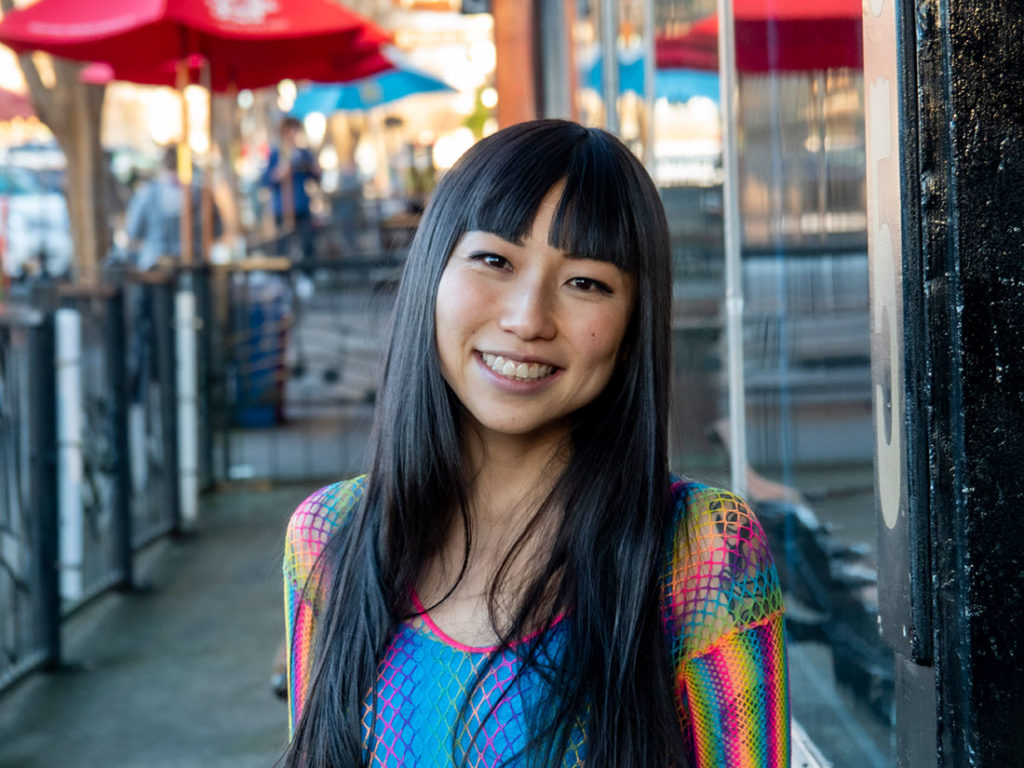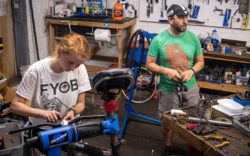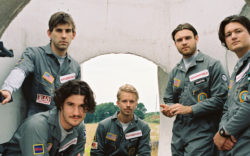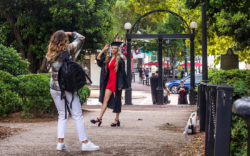Naoko Uno lives a dual life, but unlike the superheroes of your favorite comics, there is no secret to her cool identities. When Uno isn’t pounding away on a keyboard and belting out backup vocals for her psychedelic pop band Calico Vision, she’s donning a lab coat to research vaccines at the University of Georgia’s Ted Ross Lab at the Center for Vaccines and Immunology.
Working with vaccines hadn’t always been the plan for Uno. Her father—a physicist and researcher in Kawasaki, Japan—wanted her to follow in his path and become a physics professor. Uno followed that plan by pursuing a masters in physics at Portland State University, but while using nanoparticles as a vaccine delivery system, she discovered her love for vaccine research.
“Physics was very theoretical. It’s not very applicable or fundable,” Uno says. “I really liked that vaccine aspect of actually being able to help people right away.”
Before studying COVID-19, the focus of Uno’s research was the Zika virus and the dengue fever virus. As a graduate student, she was the solo researcher on the latter in her lab, which had received funding to research vaccines for both viruses.
When COVID-19 hit the U.S., many people felt as if the country was unprepared to deal with the virus. But Uno says she felt as if her graduate studies prepared her a bit for what was to come.
“Dengue and Zika, they’re labeled as ‘emerging infectious diseases,’ and so is coronavirus now, and so I think it did prepare me just with trying to figure out new experiments,” Uno says. “’With coronavirus, no one knows what they’re doing, but we’re all trying to help each other. And so, I think being so independent in my grad studies kind of helps me think or be a better researcher.”
In 2018, Uno won UGA’s Three Minute Thesis competition with her dissertation on the dengue virus, an accomplishment she partly attributes to her musical background. “I really didn’t think I was going to win because everyone else did such a great job,” she says. “So I think having that background doing musical theater really helped me with blocking and being able to project really loud in the theater.”

Uno grew up in a musical household, her interest in music coming from her mother, who’s a piano teacher in Japan. Uno is currently a member of two Athens bands, Calico Vision and metal group Fleet of Pigs; each gives off different vibes to audiences.
“Fleet of Pigs touches more on my musical-theater side, where it is just performing, and we have costumes and lights, and it’s very tongue-in-cheek,” she says. “Whereas Calico Vision, I do put in a lot more of myself. We devote a lot more time to it. And even though it’s not as catchy and loud and fun as Fleet of Pigs, Calico Vision is still fun. And our shows are always real creative with lots of fog and projections.”
While the pandemic has put live shows on hold, Uno says Calico Vision has spent the time writing new songs and will start recording an album at the end of March. She’s also eager to host another Athens Face/Off, an annual event she co-organizes where 60 musicians are randomly assigned into 20 bands and have to perform together.
Even though the music scene has effectively been shut down, Uno says the pandemic has helped her realize what’s important to her. “Music has always been a really important part of my life. And I think it was a really good stress reliever when I was in grad school,” she says. “And I think not being able to play shows and having that social aspect made me really bummed out.”
Although vaccine research is a lot of hard work, Uno says she loves her job and is grateful for the people who have been open and curious about the virus. “It’s kind of cool. Now, so many more people in the public kind of have a better understanding of vaccines and viruses. But, I also don’t think they understand how much work goes into it, and how many hours we’re in the lab on the weekends,” she says. “I think a lot of us have fun doing research—or we’re masochists. I don’t know, but I think we all do it because we love doing science.”
Like what you just read? Support Flagpole by making a donation today. Every dollar you give helps fund our ongoing mission to provide Athens with quality, independent journalism.










